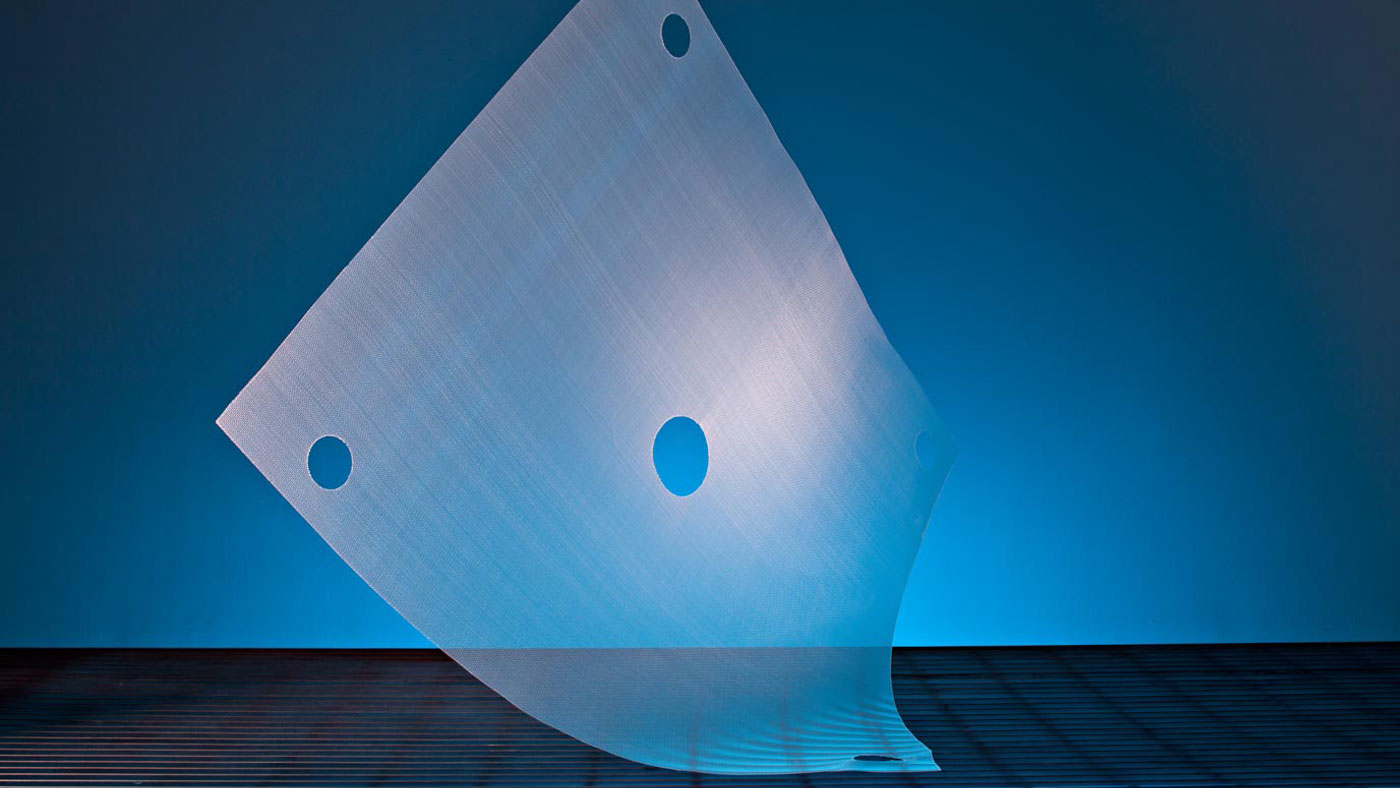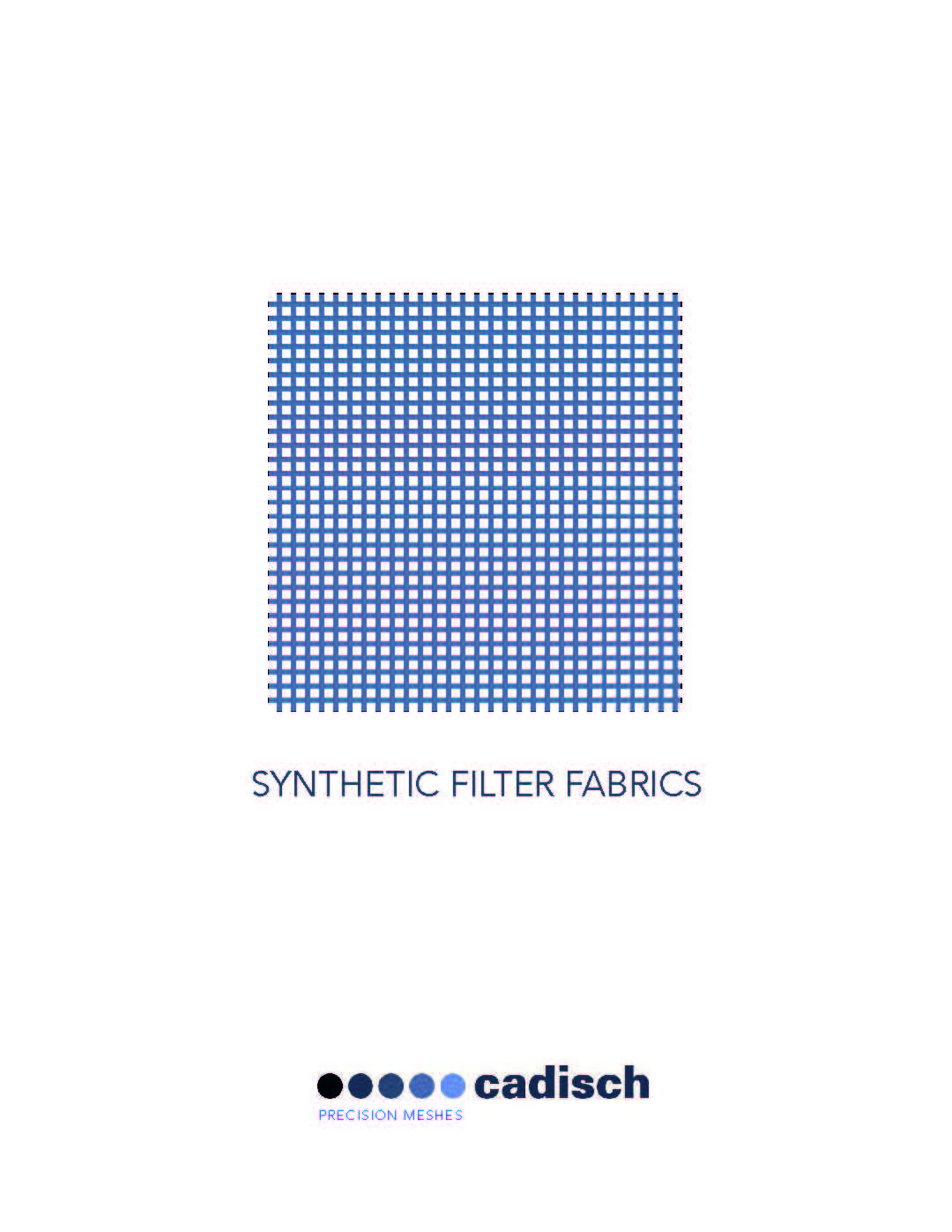Monofilament Filter Fabrics
Monofilament filter fabrics are ideal materials for sieving, straining or filtering most liquids, powders or sludges. The term ‘Monofilament’ means that each thread used in the construction of the cloth is a single smooth solid strand instead of many smaller diameter threads twisted together, as in a spun or multifilament material. These monofilament threads are perfectly round in section and are extruded to very precise and uniform diameters.
Their advantages are:
A. Due to their uniformity they can be woven with great precision to give exact and regular apertures,
B. The resulting material has a very smooth surface so that the filtered particles will easily separate from it,
C. They have great strength and elasticity.
After weaving, our fabrics undergo a finishing process to add the properties required for specific applications. During the finishing process, the fabric is scoured to remove any foreign substances and the yarns are then stabilised within the weave in order to eliminate shrinkage by a process known as ‘heat setting’.
Materials:
- Monofilament Nylon 6.6 filter cloth
Monofilament Nylon is a versatile material due to its great strength, flexibility, long life and resistance to abrasion. Nylon has excellent resistance to most common solvents and will operate continuously at temperatures up to 100°C in the chemical pH range 7-14. Its chemical and physical properties are shown in the table below.
- Monofilament Polyester filter cloth
Monofilament Polyester is particularly recommended for use in manufacturing conditions in excess of 100°C. It is suitable up to a maximum working temperature of 150°C in the chemical pH range 1-7.
- Alternative Materials
Although Nylon and Polyester are satisfactory for most screening applications, we also have a range of Polyethylene, Polypropylene, PTFE, Silk, Nomex, etc.
Product Tables:








